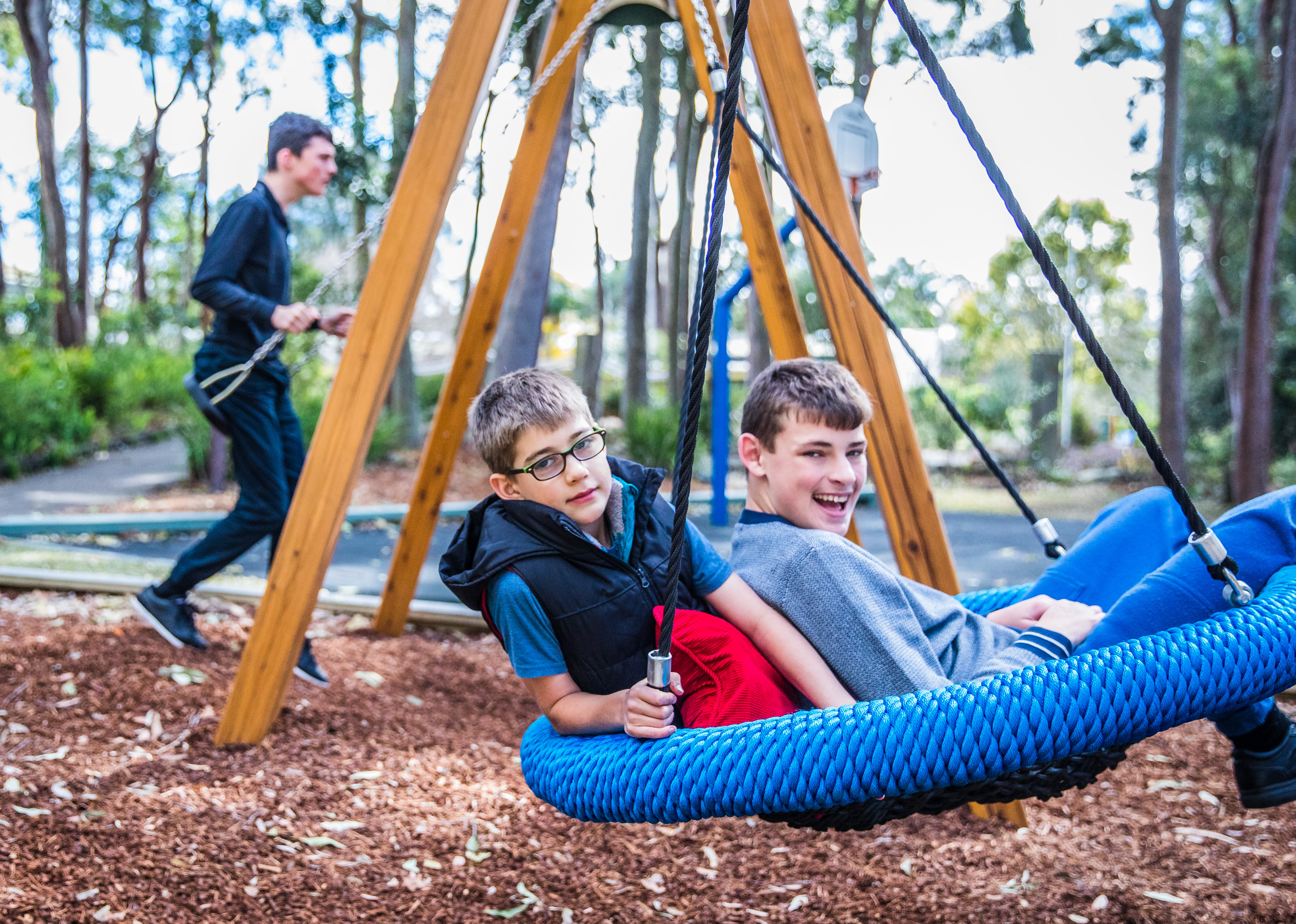
Set on a 30-acre bushland site in Dural, Warrah School provides an idyllic environment for children with moderate to severe autism and other disabilities.
The school is part of the larger Warrah Community that includes a biodynamic and organic farm and a supported community for adults living with disabilities.
Founded 50 years ago, Warrah School offers educational and vocational programs in the Rudolf Steiner tradition of learning, which addresses three key elements of human development – thinking, feeling and activity, incorporating the connection to and healing power of nature.
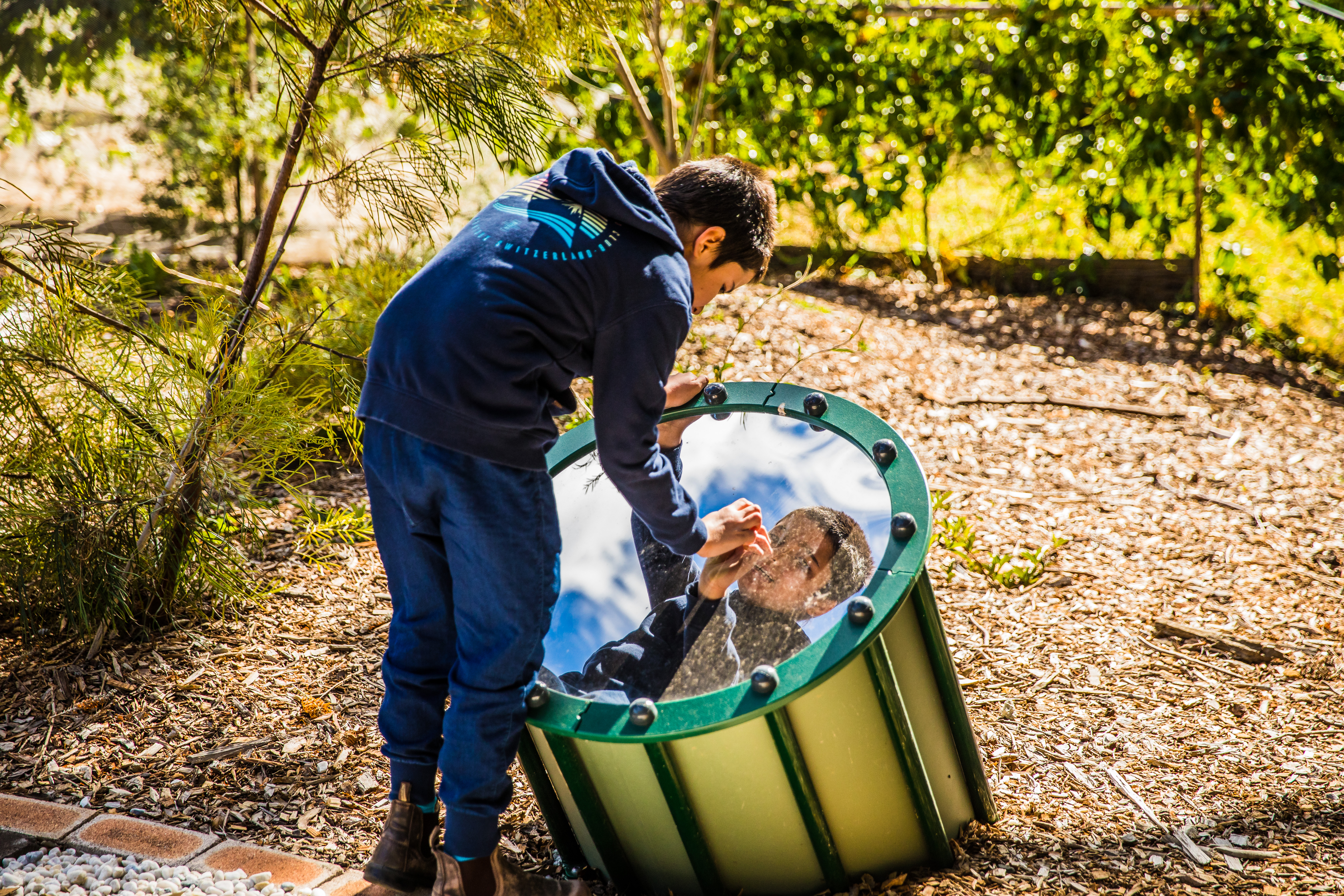
“We have recently developed a new curriculum on the leading edge of special needs education,” Principal Jan Fowler says, “students thrive when they have a connection to the natural world and can see the transformation process revealed to them through working with natural materials, such as wood, wool and fibre and the earth.”
With almost 1000 trees on the property, fruit and vegetable gardens, and abundant wildlife, the school makes the most of its beautiful environment “to do something purposeful and meaningful,” she says.
“Instead of teaching literacy and numeracy through books — a passive approach — we engage them in a range of practical tasks.”
Students learn traditional crafts, such as spinning and weaving wool on a loom and turning wood on a lathe to create products of use for the Warrah and local community. They also participate in growing the farm’s fruit and vegetables, which they then harvest and learn to cook with.
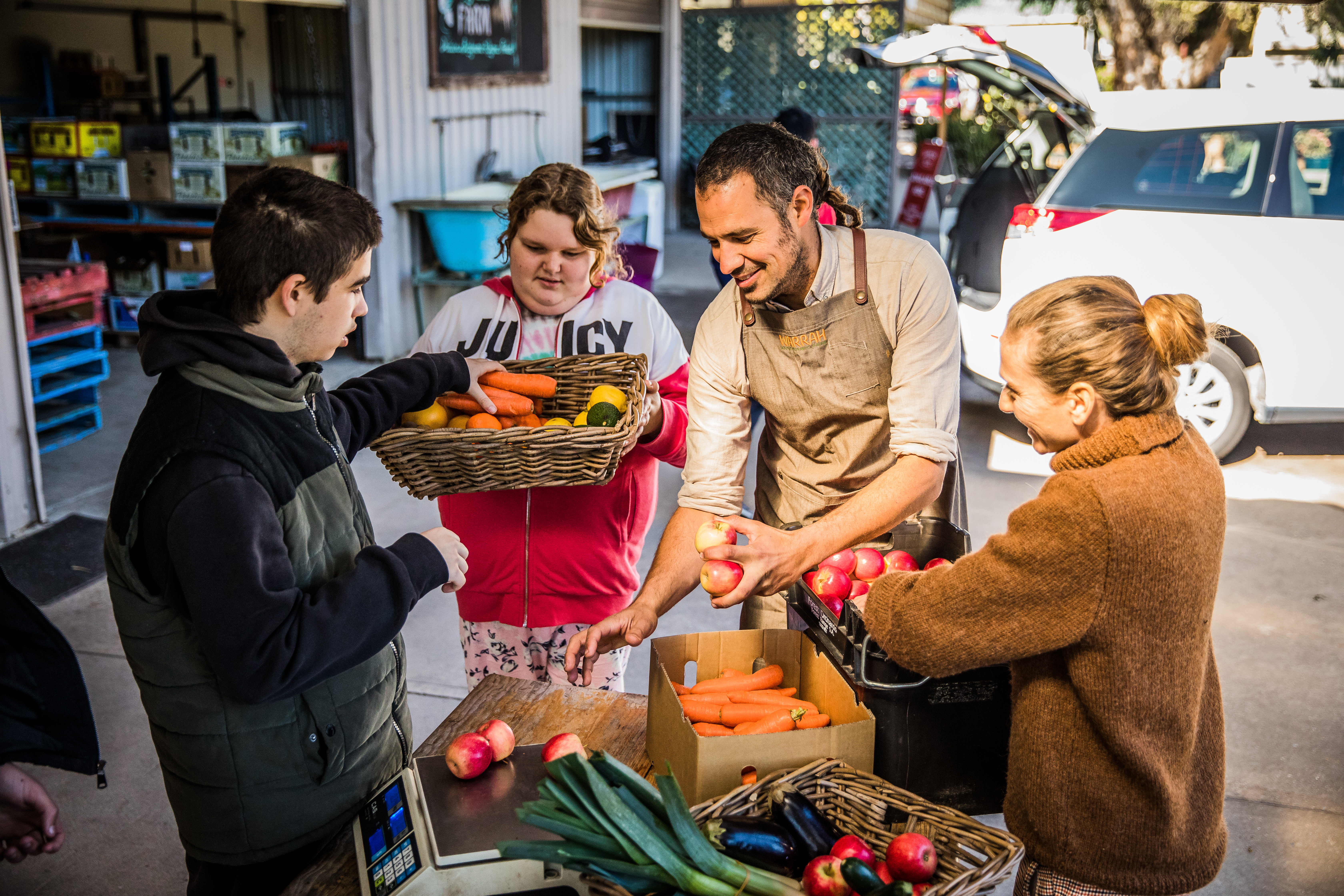
In the community’s Farm Shop, students measure, weigh and pack produce for the co-op boxes; acquiring computational and organisational skills while performing a useful job that fills them “with great pride and independence,” Ms Fowler says.
Manual activities help students “find connection and meaning,” she says: “You can see the A-ha! moment when they realise that they are creating something; it gives them joy and the sequential process provides the learning once realised in an end product.”
And a lot of incidental learning. “The skill that’s required to set up a loom, in terms of getting the quantity of wool, creating the design, colour and being supported to deliver quality workmanship, is an amazing process that encompasses artistry, mathematical calculations and even the biology and growth cycle of the sheep,” she says.
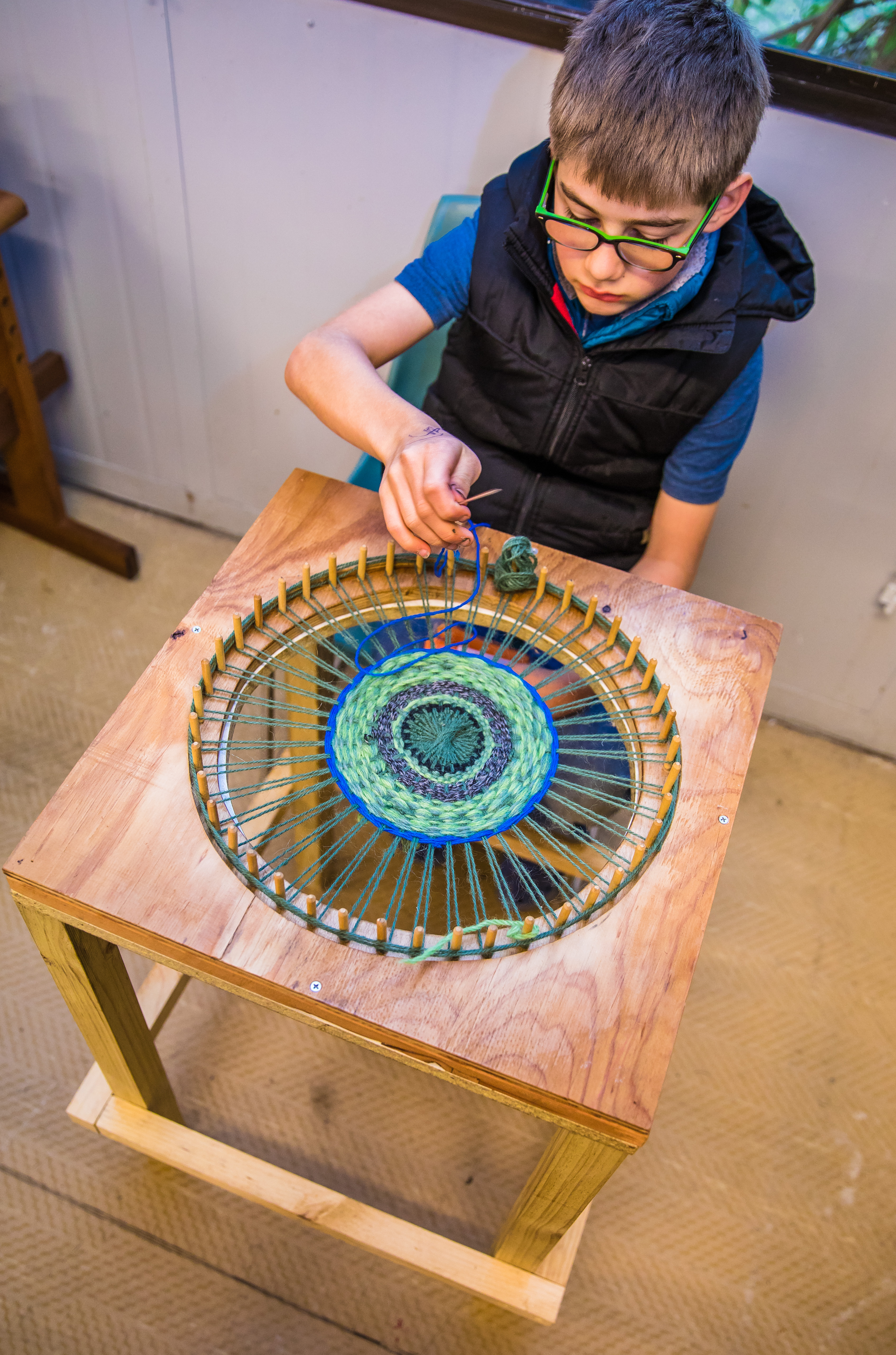
“We work with technology too but there is so much research that supports the premise that developing the capacity to work with hands fosters the capacity for thinking.”
The rhythms and routines of old-fashioned farm life are a calming influence on autistic children, who often suffer from crippling anxiety, she says, and it equips them with knowledge and skills that can lead to a meaningful job after leaving school.
“We see the farm as a unique gift to Warrah but particularly for the students. They see the cycle of the year, experience the impact of weather, seasons and rainfall,” she says, and “experience food from farm to table.”
Another benefit is a healthier diet, she says, explaining that autistic children can be very fussy eaters but after a season working in the strawberry patch, they are often eager to taste the strawberries and vegetables they have cared for and find they love them.
Learning to cook in the school’s brand new wheelchair accessible kitchen has a similar impact on their eating habits and is an essential skill, Ms Fowler says.
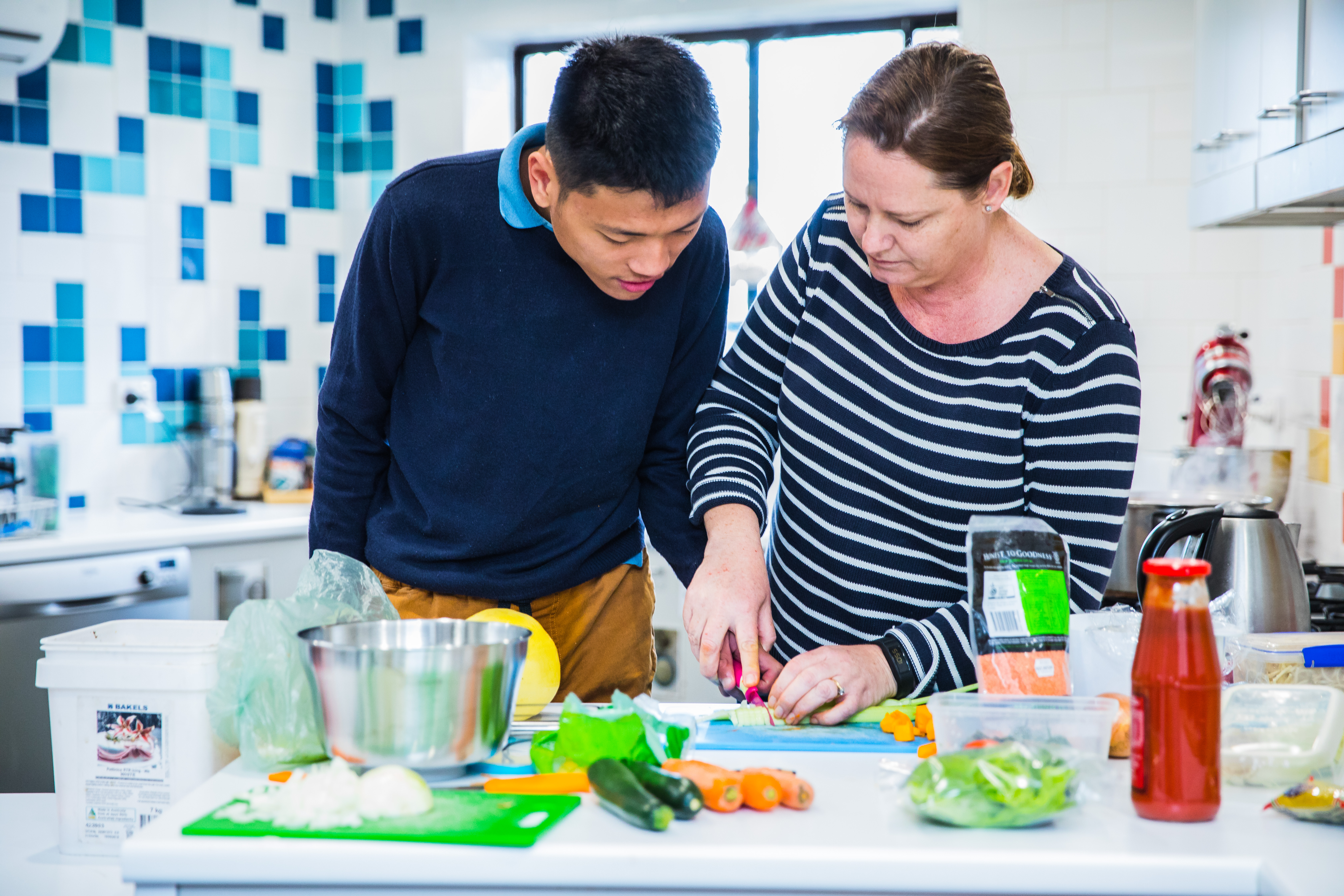
Over the course of the program, students learn to prepare a range of simple, healthy meals from soup and casseroles to baking their own bread and, like all kids, “they love making birthday cakes,” she says.
Teaching life skills is at the heart of the Warrah School mission, she says: “We strive to give them as much independence as possible and share experiences. Sharing a simple meal, going to the shop and buying food ingredients, paying and getting change, learning to clean up after cooking, learn to make a bed, do their laundry. We’re always preparing them to live in the community and realise their potential.”
The after-school program for senior students is an important component of transitioning older children to adulthood, Ms Fowler says.
She says students tend to be anxious about the prospect of leaving the school but through the program’s social activities and supported work experience they gain “a platform and the confidence to step out into the wider world.”
Students receive workplace readiness training via an onsite TAFE course and by attending Supported Employment Centres before being placed with local employers and volunteer groups.
“We had a young student who was passionate about books. We worked with Redfield College in Dural, who took him in for work experience in their library, and as a result he got employment with the council library,” Ms Fowler says.
Other former students help out at the local Bunnings nursery, another is a barista and one particularly “happy, outgoing” student cheers the residents at a nearby aged care home with his regular visits.
The best part of her job is seeing students flourish, Ms Fowler says.
“We focus not on ability but on capacity and we’re always striving to help them master skills. Today, we have a group of students doing horse riding at the local stables. It’s a very carefully thought-out process: they practice sitting in the stable, putting on a helmet, putting on boots and eventually they get to ride and they love it.
“We have a strong relationship with Vision Valley Camp at Arcadia and the students do canoeing, abseiling and rock climbing.
“We’re so proud of what they’ve achieved. It’s about building physical strength but also overcoming challenges knowing you will be supported, which builds trust.
“Some of our greatest achievements are seeing them become independent, achieve outcomes they never thought possible and getting joy from connection.
“A meaningful, purposeful life is our goal for each student – becoming the best they can be,” she concludes.

